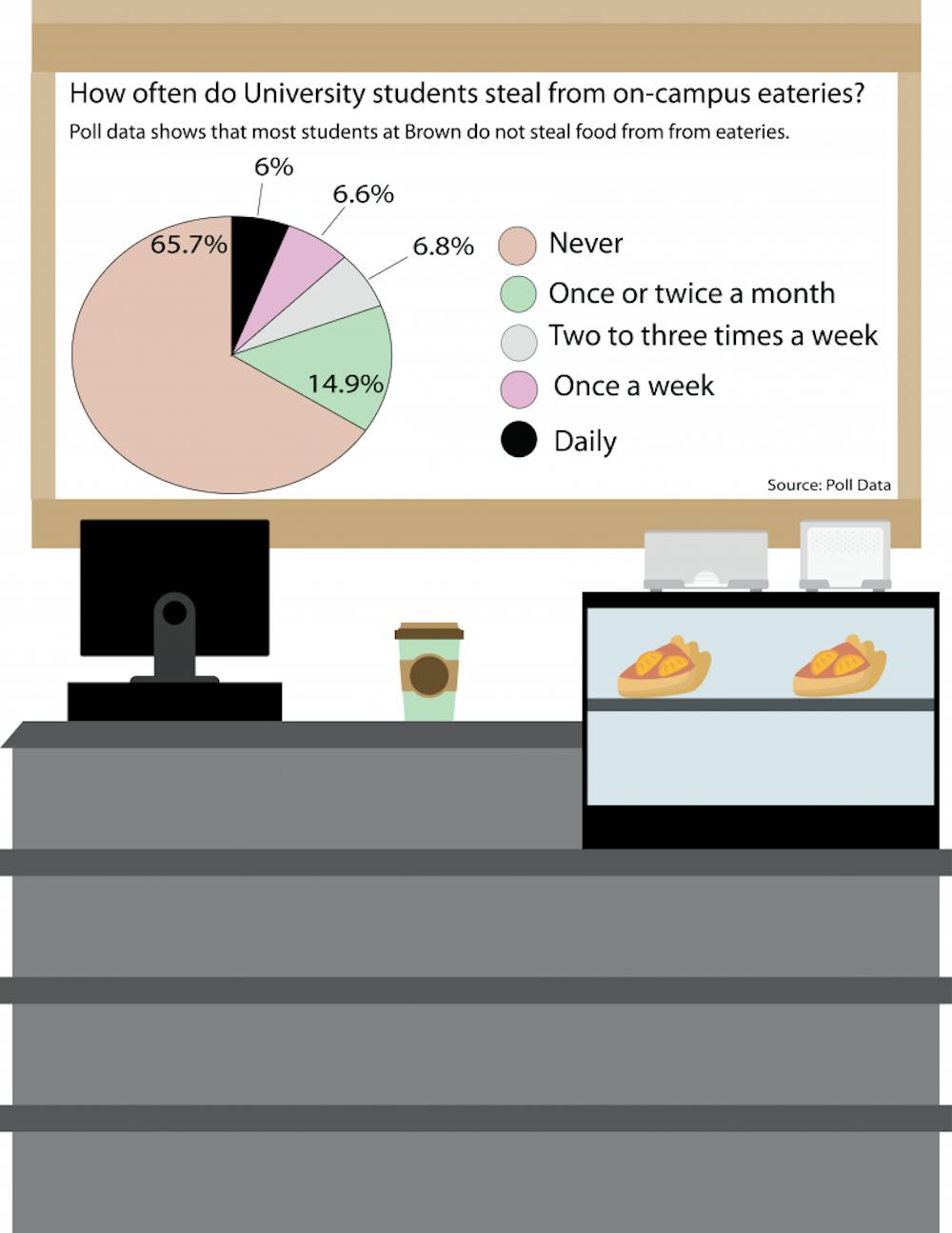For many students, a trip to the Ivy Room includes using a meal swipe, enjoying a meal with friends and leaving. But according to Mark, a student whose first name has been changed to protect him from disciplinary action, some students will order a smoothie and finish the drink before walking to pay, effectively avoiding the use of a meal swipe.
About 20 percent of students steal at least once a week and over 33 percent of students steal food at least once a month from Brown eateries, according to The Herald’s spring poll results.
“The frequency of theft is much lower than suggested by the poll,” wrote Peter Rossi, director of dining services in an email to The Herald. “The most common occurrence our staff (is) required to manage is when someone attempts to pass by our cashiers during busy periods without making a payment.”
Some students cited timing as a reason for stealing food. “(I) do it when (dining halls are) not going to be open or not available like the weekends or spring break,” said Michelle, another student whose first name has been changed.
Ben, another student whose first name has been changed, says he has stolen food when the line to pay is too long, referring to a recent incident when he stole a yogurt bowl from Andrews Commons.
Others also believe the University overcharges them for meals. Mark, who pays for the seven-meals-a-week plan, said he steals when he doesn’t “have enough meal credits for the week.” “If I take one more meal for the week, I really don’t think that’s going over the value of my plan, considering how much I’m paying Brown,” he added.
“Especially for (Josiah’s), there are a lot of people who want to steal because the popular foods like the ‘spicy with’ are actually really expensive,” said Katherine, a cashier at Jo’s whose first name was also changed because she did not want to be singled out by students while working.
The meal plans are “overpriced,” Mark said.
Michelle also believes the University overcharges students on meal plans, and questioned the rationale for overcharging. “I would like to know what the extra money goes to. Is that the wages of the workers who prepare food?” Michelle said.
Stealing from campus eateries has “financial implications on the program,” Rossi wrote, but did not elaborate on the extent of the financial impact.
Dining Services has taken measures to prevent students from stealing food from eateries. “Dining Services works closely with the Department of Public Safety,” Rossi wrote. “We also take several preventative measures, including the placement of security officers at locations during peak operational times.”
Sometimes the measures in place to prevent theft can prove too difficult for workers to follow, according to Katherine. Jo’s policy requires that cashiers check each box that carries food to charge for the correct items. “But also it’s really tiresome so at the end of my (last) semester I kind of gave up,” she said, adding that she knows other Brown University Dining Services cashiers who have also given up on following the policy.
For Michelle, stealing food has not left her with any feelings of guilt. “I’ve had a number of friends congratulate me on the haul for spring break,” she added.





